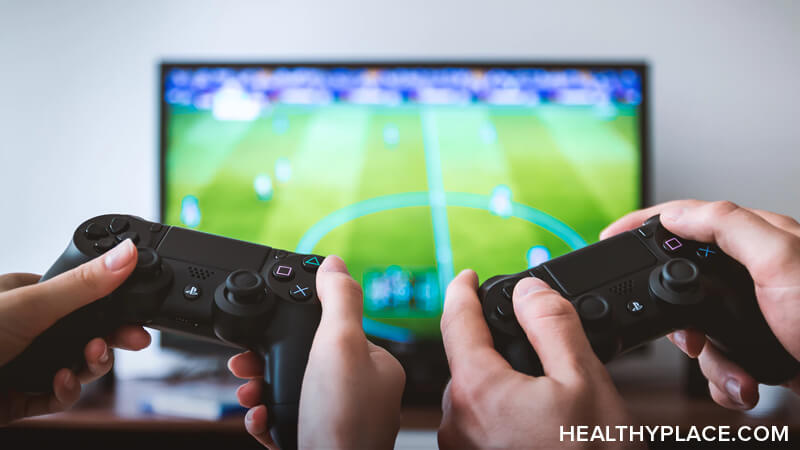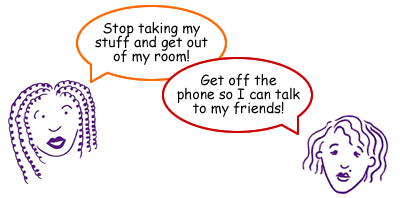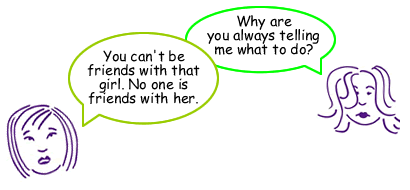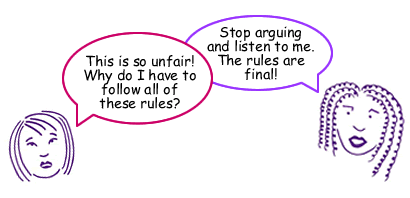Book Excerpt
The Illusion of Sexual Individuality
Sexually, we like to think that we have it together, that we are more sophisticated and sexually aware now than at any other time in history. Yet, as we have seen, the current stereotype of normal, desirable sex is still quite narrow and rigid.
One exercise I often do when training sex therapists is ask them to describe what normal sexual frequency is. Typically, the answer is, "Whatever is right for the individual." Then I ask how they would describe someone who only rarely desires sex, or a couple where one partner wants sex twice a week and the other once a month. Is one person closer to "normal" than the other? How would they, as sex therapists, go about helping this couple achieve sexual harmony? Which person is under more pressure to change? Despite the standard answer from therapists that this couple suffers from mismatched libidos and that both people are "normal," the pressure in therapy is most commonly on the person with the lower sex drive to pick up the pace.
When people claim to be liberated sexually, what they really mean is that they explore and enjoy experimentation and variety at the active, lusty, passionate end of the scale. We feel we are being broad-minded when we are comfortable with or tolerant of sexual diversity, such as homosexuality or bisexuality, or are prepared to experiment with oral sex, sex toys, threesomes, or bondage and discipline. However, if we are to truly embrace the notion of individual differences in sexuality, we need to think far more broadly than this and become respectful of people who are at the other end of the spectrum. Where does the asexual individual fit into the scheme of things? How is a person who prefers only "conventional" sex judged? What label is given to someone who is turned off by oral sex or by being touched on the genitals? What words are used to describe a woman--or man--who doesn't seem interested in sex? What are some of the factors that are commonly thought to lead to this disinterest?
In a recent survey in the United States, 43 percent of women and 31 percent of men identified themselves as having one or more sexual problems. Among women, 33 percent complained of low sexual desire, 24 percent reported inability to come to orgasm, and 14 percent stated they experience pain during sex. For men, the most frequently reported problem was premature ejaculation, accounting for 28 percent of complaints, while 15 percent rated themselves as lacking interest in sex, 10 percent said they had problems attaining or maintaining an erection, and 3 percent had physical pain during intercourse.
Some researchers have criticized this study because these problems were identified by self-rating rather than by clinical evaluation, but it is precisely this aspect of the survey that intrigues me. If one in three women believes she is not as interested in sex as she should be, and one in four men doesn't last as long as he thinks he should last, which of the following is more likely?
It's difficult to believe that such a large proportion of our population is sexually inadequate. Because problems such as painful intercourse and difficult erections are relatively objective, the figures given are likely to be fairly accurate, but even within these categories; the problems may be caused by worry about performance rather than by any psychological or physical disorder.
Many women who believe they are not experiencing arousal and orgasm have been influenced by the stereotype of hot and powerful sexual response portrayed in the media and promoted by the myth that if you aren't sure whether you've had an orgasm, you haven't! Some women who believe they are unable to reach orgasm are surprised to learn that that nice warm feeling or that sigh of relaxation is an orgasm, even if it is perhaps a 2 on a 10-point scale.
Sexual desire and ejaculatory control are more subjectively determined and evaluated. What is sexual desire? Is it physical passion, or is it an emotional desire for intimacy? Can it be different things at different times? Is it possible to want sex but prefer to avoid it, and if so, why? What is a "normal" level of sexual interest?
Interestingly, this survey did not include questions about desiring sex with great frequency. Does that mean that you can't want sex too much, but you can want it too little??
How quick is too quick for ejaculation? Which partner is worried about it? Why? Is the problem that the woman finds it difficult to come to orgasm with penile thrusting despite the man controlling ejaculation for a reasonable time?
Additionally, for those people who rated themselves as not having problems, how did they decide this? Were all of them behaving close to the cultural norm, or were some of them confident enough to be happy to be different?
These questions need to be carefully considered before anyone, including sex therapists and researchers, can begin to understand the extent of individual variation in sexuality. Until these issues are thoroughly explored and discussed in sex manuals, magazine articles, and self-help books, people in the community will continue to rate themselves as having sexual problems even when there's a good chance that they're perfectly normal.
Normal Variation in Individual Sexuality
Thirty years as a sex therapist has highlighted for me what should be recognized as a self-evident truth--that people are not the same sexually, in the same way that they are not the same with respect to height, weight, intelligence, personality, food preferences, general health, and so on. In spite of the fact that the many ways in which people differ sexually become evident from just listening to them talk about their sexual experiences, there is little or no discussion of such differences by authors writing in the field of human sexuality. There are the acknowledged differences in sexual orientation, but gay and lesbian couples can also find it difficult to negotiate differences in individual wants and needs.
One of the most obvious ways in which people differ is in terms of their interest in sex, usually called sex drive.
However, there are several other characteristics that also vary among individuals, as evident from the following list.
-
Frequency of sexual activity. Some people hope for, keenly want, or desperately need sexual activity several times a week or perhaps even more than once a day, whereas others are entirely satisfied to have sex once a month or even less often. Although there is a general acceptance that the need for sex varies, there is no agreement as to what, if anything, constitutes an abnormally low or abnormally high sex drive. It's easy to see, however, that there would be some tension in a relationship where one person wants sex several times a week and the other would like it less than once a month.
-
Robustness of desire. Fluctuation of interest is a specific aspect of sex drive that can be confusing. Some people's level of interest remains reasonably constant no matter what else is happening in their lives, whereas others may switch off if they feel overwhelmed by other issues. This can lead to misinterpretation of motives: A person whose interest stays steady regardless of life events may seem insensitive, while one whose desire fluctuates may sometimes seem emotionally less committed to the other partner.
- Type of desire. Currently, the expectation in Western culture is that sex drive is about hot passion or physical lust, but for some people, desire is much more muted and may be softly emotional rather than intensely physical. How does one partner interpret the signals of the other?
-
Desire versus response. This difference has been recognized in sex research for many years, but it doesn't seem to be widely appreciated in the community. Some people want to engage in sexual activity quite frequently but may not necessarily become aroused and orgasmic. Conversely, there are many people who aren't aware of any regular interest in sex and feel they could live without it, but if the partner initiates sex under the right circumstances, they can respond with enthusiasm.
-
Initiation versus response. It makes sense that if someone rarely feels the desire for sex even though she may enjoy it when it occurs, she isn't likely to initiate it very often. It simply doesn't occur to her, and her partner may be devastated, seeing it as a rejection or an indication that he's not sexually attractive. An imbalance in frequency of initiation of sex can be a major hurdle for couples to overcome.
-
Ease of arousal. Some people find it difficult to get turned on, and their partner complains that it takes a lot of work to start to get them hot, while others respond quickly. Sometimes, those who are slow to arouse are not confident enough to say what they need, or their partner persists in trying to stimulate them in various ways that actually turn them off. Nevertheless, the bottom line is that some people simply arouse more quickly than others.
-
Time to orgasm. Why do some people come more quickly than others? Should everyone be able to reach orgasm in a standard period of time? There are behavioral programs that can teach men who ejaculate rapidly how to delay reaching orgasm and that can help those with inhibited ejaculation come more easily, and there are strategies that will help women become aroused and come to orgasm more quickly. However, there will still be a range of times that it takes to come to orgasm, with some people having characteristic patterns of early (easy) or late (difficult) orgasm and others varying widely, depending on the circumstances.
-
Variation in response style. Perhaps this variable would be better termed variation in pleasure style. Sometimes, one partner has little interest in sex and doesn't really want to become aroused and have an orgasm, being quite happy to have quiet, cuddly sex, while at other times, the physical response is strong and urgent. This can be confusing if the other partner thinks sex is always about arousal, experimentation, and so on. And, Of course, there are individuals who mostly prefer quiet intimacy and find attempts at sexual arousal irritating, which can leave both partners bewildered and frustrated.
-
Variety in sexual behaviors. There seems to be an almost limitless range of things that people can do for sexual pleasure. Titles of magazine articles such as, "1,001 Ways to Drive Your Man Wild in Bed" give some idea of the smorgasbord that's available. However, it would be unreasonable to expect all people to like all of these behaviors. There are those who find particular acts abhorrent and those who find them simply boring. Some people prefer to rely on a limited number of tried-and-true activities, while others crave variety and experimentation.
-
Importance of sex. People's responses differ significantly when they're asked to rank the importance of sex in a relationship when compared with other variables, such as love, affection, companionship, financial security, children, and so on. Although studies consistently show that men tend to rate sex as more important than women do, this is a generalization, and either gender may give sex a high or low priority.
These are some of the variations in human sexuality that I have encountered in my long practice of sex therapy. I don't know how the normal/abnormal boundaries should be set, but it's my view that most of this variation should be considered part of normal human diversity.
Does this mean we must just accept how we are and not try to reach goals that may make sex more satisfying or relationships easier? If not, how do we decide what can be changed, and by what method? These are not easy questions to answer.
Certainly, sexual problems exist. If people believe they have a problem, then clearly something is worrying them. However, if they are comparing themselves with an unattainable ideal, their individual level of sexual functioning is not validated, and what is normal for them becomes defined as sexual dysfunction. The real problem confronting us is how to decide if someone's concern is a matter of definition and misinformation or if the behavior is truly outside the normal range. Even if it's not common, does this make it a dysfunction?
Lack of acceptance of the extent of individual differences, and the associated belief that normal people experience regular sexual desire and enjoy experimentation has led to the belief that everyone has the same sexual potential. Surely, the thinking goes, if it's normal to have a persistent physical sex drive, for example, there must be some way to help people who don't have it to overcome their problem. The idea that what many people are already doing may be the best they can do is just not acceptable. It's this assumption that has caused so much misery in our time.
The emergence of sex therapy in the 1970s encouraged the view that everyone has the same sexual potential. Behavioral programs to teach women to be orgasmic and men to delay ejaculation assumed that with the right strategies, everyone could achieve these goals.
If these programs didn't work for some people, the usual conclusion was that they were suffering from some form of sexual pathology that was loosely labeled sexual inhibition. The logical conclusion that perhaps the particular goals or techniques weren't right for those people wasn't even discussed. Although sex therapy has undergone many shifts in recent times, the idea that there may be many definitions of a successful sexual relationship is still not usually addressed by either therapists or clients.
Instead, we have spent a lot of energy trying to identify the factors associated with sexual "failure." A common view is that if we "fail" sexually, there must be some sexual trauma or secret in our past to account for it and that not reaching the standard is inevitably bad and should be corrected with therapy.
Sexual Personalities
Look around at your friends, family, and colleagues. Each person has a unique set of behaviors, thoughts, and feelings that make up the sum of who they are. This set of characteristics forms the personality of the individual and is consistently present for that person. Some characteristics may dominate or be present in all interactions, while others may reveal themselves only in specific situations.
In general, personality is considered to be stable over a person's lifetime, but not all characteristics are fixed or inflexible, and people can and do adapt according to circumstances and life experiences.
At the present time, there is a tendency to use sexual personality characteristics in a critical way. For example, for "conservative," read "inhibited"; for "shy," read "hung up"; and so on. However, if we acknowledge that each person has a unique personality and that what one person likes and admires in a friend, another may find annoying, then we can assume that the situation is similar with sexual personalities. In other words, what one person finds attractive, endearing, or exciting in someone else's sexual personality may be a complete turnoff for a different person.
Who is in a position to make a judgment as to which personality is the most functional? In the end, this judgment tends to become relevant only when an individual becomes involved in sexual interaction. Of course, this brings into play the importance of the relationship between the two: A relationship characterized by mutual generosity, kindness, and gentleness is more likely to be able to resolve or accommodate differences than is one that is harsh, critical, and rigid.
Sandra Pertot, PH.D., is a clinical psychologist and sex therapist in private practice. She has been published in Woman's Day, Penthouse, and many publications in Australia where she lives.
Reprinted from Perfectly Normal: Living and Loving with Low Libido by Sandra Pertot © 2005 by Sandra Pertot. Permission granted by Rodale, Inc., Emmaus, PA 10098. Available wherever books are sold or directly from the publisher by calling (800) 848-4735 or visit their website at www.rodalestore.com.









 Start with this mental health self-help groups list if you or a loved one is looking for a safe place to share experiences, coping strategies, and other helpful information about a mental illness:
Start with this mental health self-help groups list if you or a loved one is looking for a safe place to share experiences, coping strategies, and other helpful information about a mental illness: